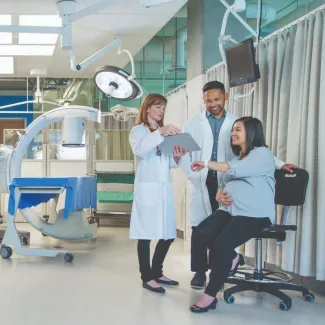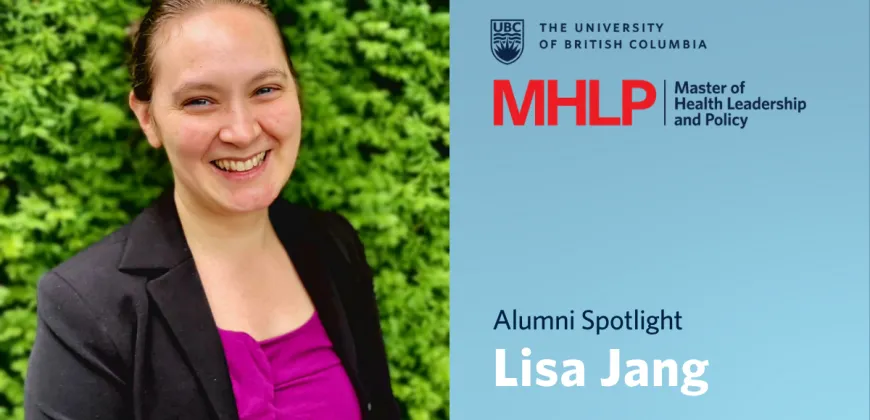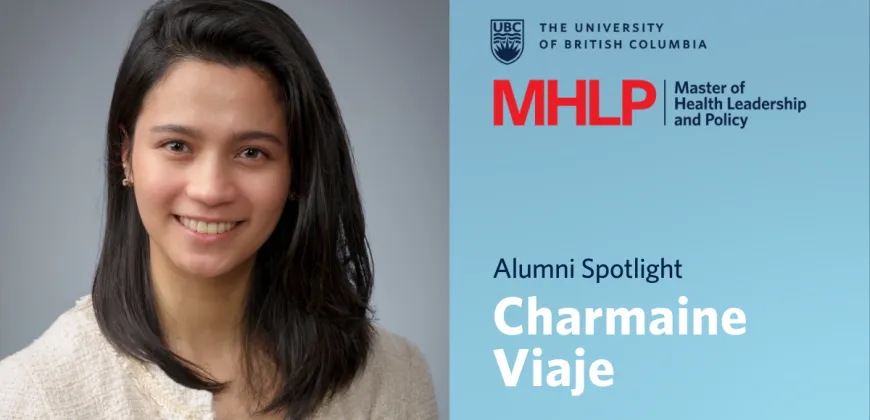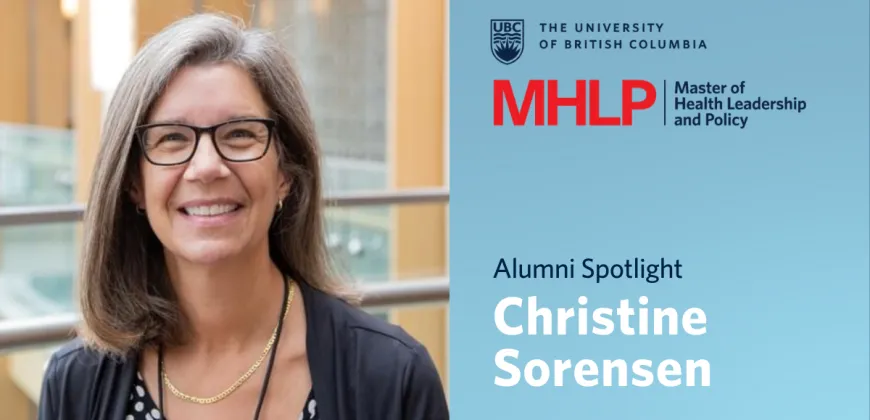Alumni Spotlight: Yenlinh Chung
For Yenlinh Chung, 2020 was a transformational year, enabling her to confidently advance into a new leadership position where she’s applying her skills in evidence-based practice, communication and change management.
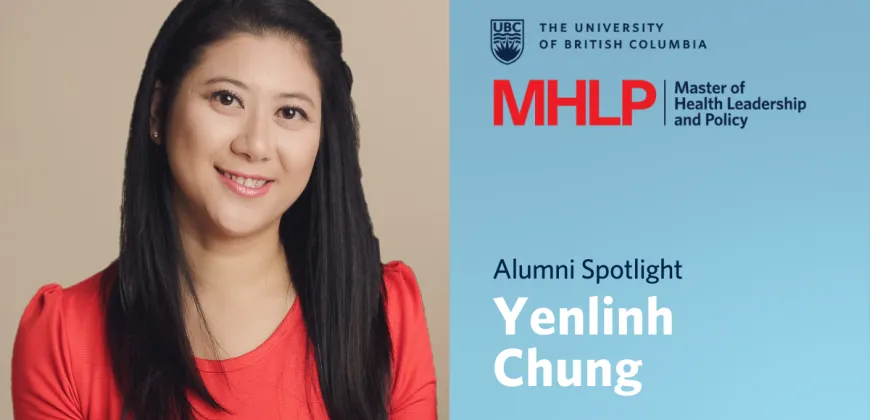
After graduating with a degree in nursing, Yenlinh Chung worked in a variety of clinical settings, including an oncology medical unit, a neurology unit, home health and then as a public health nurse for eight years. When a mentor encouraged her to pursue her Canadian Nurses Association Community Health Certification, she says she began to see the leadership potential within the field and became even more interested in pursuing a master’s degree.
The challenge? Deciding which degree was best suited to her interests and skills.
“A two-year master of science in nursing, with its extensive research and thesis requirements, didn’t necessarily appeal,” she says. “An MBA seemed like it could be too far removed from my nursing context and perspective. And although I am passionate about teaching, I wasn’t sure about a Master of Education. The 12-month MHLP brought the best of each of those degrees together.”
An integrated curriculum
Students in the Master of Health Leadership and Policy (MHLP) in Clinical Education take a wide range of courses covering topics from theories of clinical education to health policy. One highlight was a course on research and evidence-based practice, which Yenlinh says improved her skills for appraising quantitative and qualitative research through a critical lens and then applying this to practice.
She chose to evaluate evidence on the current validity of a mental health screen for postpartum mothers as one of her projects for the course – a meaningful topic as a new mother herself. “I was critical that this screening tool, which has remained unchanged since it was developed and validated in 1987, could still represent the best evidence,” she says. “But my research allowed me to justify that even today, it is a valid and useful tool.”
Yenlinh says she learned first-hand the importance of creativity and adaptability within adult learning environments when physical classes moved online in March 2020 as a result of COVID-19 public health measures.
“Our instructor, Kathy O’Flynn-Magee, taught us the concepts of active learning. When classes moved online, we saw how an educator can adapt to new situations and environments while still covering the core course material. And she did this with so much creativity, which enabled us to both learn about and experience active learning.”
Yenlinh and several other students worked with Kathy on an article about these experiences – “Creativity in a COVID-19 Learning Space” – which was published in Quality Advancement in Nursing Education.
Business and leadership classes taught through UBC Sauder’s Robert H. Lee Graduate School make up 40 percent of the curriculum for MHLP students. These classes bring together students in the MHLP in Clinical Education and all students from the Masters of Engineering Leadership.
“Learning alongside those outside of a clinical background taught me the value of interdisciplinary teamwork and what’s required to build effective teams with diverse expertise,” she says. “It’s made me more confident about working in groups that bring together those with an administrative or financial perspective and ensuring they understand and value my clinical perspective and contributions.”
Bringing together new knowledge and skills
Yenlinh is now working as a Nursing Practice Initiatives Lead for the Vancouver Coastal Health Authority. Her team works in many different areas to ensure standards of professional practice are upheld, focusing on performance management and reviewing and developing standard procedures and guidelines.
It’s a dynamic and busy job that requires her to pull on all the knowledge and skills she gained during her one-year degree.
She says the business courses on organizational leadership, change management and project management have proven essential.
“We’re creating new operational workflows and guidelines, so incorporating a change strategy that effectively communicates and engages all stakeholders is vital for empowering and motivating change agents. Providing guidance and supporting the people side of change can lead to project sustainability and success.“
And the clinical education classes have proven equally valuable.
“Knowing the foundations of adult learning theories has grounded my understanding, helping me ask better questions about curriculum development and roll-out. I’m motivated to create educational materials that are engaging and supportive for frontline staff so they can seamlessly incorporate new knowledge into their practice.”
She recently put all of these skills into practice when she was asked in March to facilitate the onboarding of a group of new immunizers – signing off hundreds of allied healthcare professionals (including licenced practical nurses, registered psychiatric nurses, registered nurses, retired nurses, dentists, and medical and nursing students) on how to administer the COVID-19 vaccine within an extraordinarily tight timeline.
“The incredible variety of experiences I had as an MHLP student – both on the clinical education and business side – have made me more agile and flexible, and to be able to rise to and relish these kinds of challenges.”
–
Take the steps to join the next cohort of healthcare leaders. If you haven’t already, assess your eligibility and sign up for the upcoming information session to learn how to submit a strong application. Learn more about this innovative master’s program:
